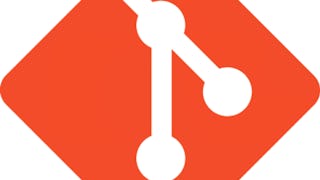This course takes you through the journey of Git, starting with the basics of tracking changes, staging files, and committing updates. Then, you’ll explore more advanced features like branching, merging, and rebasing to enhance team collaboration.

Discover new skills with 30% off courses from industry experts. Save now.


Recommended experience
What you'll learn
Use Git confidently to track changes, manage commits, and implement effective branching and merging strategies.
Automate repetitive tasks using Git hooks and aliases, and troubleshoot issues using powerful commands like git bisect.
Connect Git to CI/CD pipelines, adopt GitOps practices, and manage large codebases with performance-focused techniques.
Ensure Git repo security with GPG signing, protected branches, and use debugging tools to troubleshoot issues.
Skills you'll gain
Details to know

Add to your LinkedIn profile
August 2025
See how employees at top companies are mastering in-demand skills

There are 4 modules in this course
In this module, learners will build a solid foundation in Git, covering core concepts like working directories, staging, and committing. They will explore advanced branching strategies and workflow models such as Gitflow and trunk-based development, with best practices for collaboration and clean commit history.
What's included
17 videos6 readings4 assignments1 discussion prompt2 plugins
In this module, learners will master automating and securing Git workflows while handling common recovery tasks. They’ll implement Git hooks, custom aliases, and debugging tools like git bisect, along with best practices for repository security such as GPG-signed commits and branch protection.
What's included
11 videos6 readings4 assignments1 plugin
In this module, learners will explore how Git supports DevOps workflows, including GitOps principles and CI/CD with GitHub Actions. They’ll learn techniques for managing large repositories and gain insights into Git internals and custom tool extensions for enhanced productivity and control.
What's included
9 videos6 readings4 assignments1 plugin
In this final module, learners will review Git essentials, branching, automation, debugging, and DevOps integration. It includes a course summary, assessments, and reflective discussions to reinforce key concepts and prepare learners for real-world, collaborative Git workflows.
What's included
1 video2 assignments1 discussion prompt1 plugin
Earn a career certificate
Add this credential to your LinkedIn profile, resume, or CV. Share it on social media and in your performance review.
Explore more from Software Development
 Status: Free Trial
Status: Free TrialLearnKartS
 Status: Free
Status: FreeCoursera Project Network
 Status: Free Trial
Status: Free Trial
Why people choose Coursera for their career





Open new doors with Coursera Plus
Unlimited access to 10,000+ world-class courses, hands-on projects, and job-ready certificate programs - all included in your subscription
Advance your career with an online degree
Earn a degree from world-class universities - 100% online
Join over 3,400 global companies that choose Coursera for Business
Upskill your employees to excel in the digital economy
Frequently asked questions
Git is a distributed version control system that helps track changes to files, especially in software development. It enables multiple developers to collaborate on the same project, monitor modifications, revert to earlier versions, and merge contributions smoothly.
The key difference between Git and GitHub is that Git is a free, open-source version control tool installed locally on a developer's computer, while GitHub is an online service that hosts Git repositories in the cloud, enabling collaboration and version control management.
This course covers Git fundamentals, branching strategies, advanced workflows, and best practices in version control. It explores automating Git tasks, managing repositories, and troubleshooting issues, while also addressing Git security practices.
More questions
Financial aid available,
¹ Some assignments in this course are AI-graded. For these assignments, your data will be used in accordance with Coursera's Privacy Notice.




